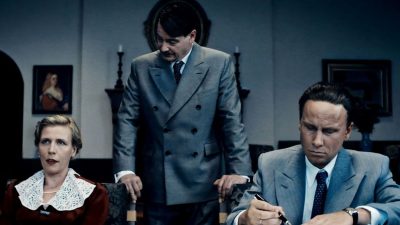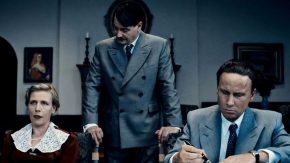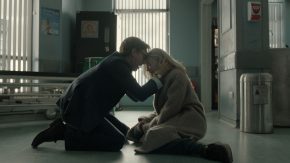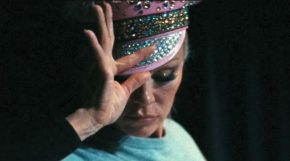Article: Zsuzsanna Deák
Translation: Nóra Fehér
“Is this hand strong enough?”– asked the tutor, and little Maxim punched him full in the stomach. Fortunately, Turchanyinova had a good day, because she took on the job of teaching the child, but working together was not easy at first. The teacher was strict and the boy was stubborn, refusing to play a note in violin lessons for weeks. When the tutress finally decided it was pointless for them to prolong their time together, Vengerov’s mother burst into tears, and little Maxim suddenly played more than a dozen violin pieces from memory.
“Such a violinist is born only once in a hundred years”– Turchanyinova declared, and the lessons resumed. Vengerov knew as a child that he wanted to be a soloist.
“I don’t want to hide in the back and play music like my father in the orchestral oboe solo, but directly for the audience”– he said. He won an international violin competition at the age of just ten and then pursued his studies in London with the renowned master Zahar Bron, who taught countless famous violinists. Bron studied with masters who followed the method of the Hungarian-born Lipót Auer (or Leopold Auer as he is known abroad), so Maxim Vengerov, like most of the most important violinists of our time, such as Itzak Perlman and Pinchas Zukerman, carries on the tradition of violin playing established in the Hungarian school of Auer. A key figure in his life was his mentor, Mstislav Rostropovich, with whom he enjoyed a legendary cordial relationship: the music supremo was like a ‘musical father’ to him.
“He introduced me to Shostakovich and Prokofiev as if they were still alive and I could meet them in person. Whenever I play Shostakovich, Prokofiev or Britten, I have a direct link with them through Slava. They were his musical fathers and he was mine – he passed on to me his views on music and the message of music.”– he told me about their work together, as evidenced by their many recordings. Vengerov moved to Israel with his parents in 1990, and although he now lives in Monaco with his wife and children, Israel remains an important element in his life. He regularly returns to his adopted country to play at memorial concerts and charity events, and has founded a music school in the country called “Tomorrow’s Musicians”. He has also made charity work an important mission: when a shoulder injury in 2005 prevented him from playing for several years, he focused on his work as a Goodwill Ambassador for UNICEF, bringing the solace of classical music to children in poverty and war-torn areas. The artist will play a 1727 Stradivarius, the instrument that will be played at the concerts in Pécs and in Miskolc.
“I was only ten years old when I first borrowed a Stradivari. As I held the beautiful, shimmering instrument in my hands, I thought that now all my dreams would come true: I just had to put the bow on the strings and play the magic of the violin. I clearly remember how shocked I was when the instrument started to squeak.”Vengerov recalled one of his defining childhood experiences in an interview. However, he later realised that each Stradivarius is ‘like a Formula 1 car’ – it’s all up to the driver, who is expected to master every nuance of the instrument.
“The instrument teaches you to play, not the other way round.”He has tried out around fifty Stradivari over the course of his career, and admits that each one is different: it’s like getting to know a new person every time:
“The genius of Stradivari is almost incomprehensible to human reason.”His current instrument, which he purchased with the help of a patron for nearly a million pounds in 1998, once belonged to the French artist Roldophe Kreutzer, known from the title of the Kreutzer Sonata. But the violin, which had been silently waiting in isolation for decades, only occasionally taken out on a private yacht, did not give itself up easily. Vengerov found it too quiet and almost gave up the violin. Even Rostropovich advised him to do so after hearing Shostakovich’s violin concerto with him. But an Israeli violin maker, Nahum Tukh, worked on the instrument until it was perfect for Vengerov. Vengerov says music is a sanctuary in the cacophony of the modern world.
“It has a healing power because it can help us learn something not only about music, but also about ourselves.”Maxim Vengerov will perform with the Pannon Philharmonic Orchestra at the Kodály Centre on 23 April and at the House of Arts concert hall on 24 April. Prokofiev’s Violin Concerto will be followed by Bartók’s Concerto at both concerts. János Kovács conducting. Visitors to the concert halls in Pécs and Miskolc can experience this healing power at the Bartók Spring International Weeks on 23 and 24 April.
Article: Zsuzsanna Deák
Translation: Nóra Fehér



























Comments